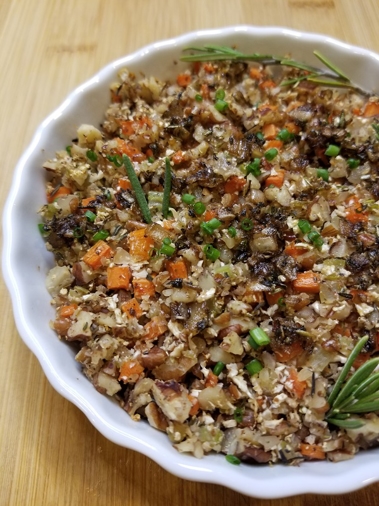Lower your blood pressure with the DASH diet
Mar 12, 2020

Research sponsored by the National Institutes of Health has found that following the DASH diet may reduce your blood pressure by a few points in just two weeks, and up to eight to 14 points over time.
DASH—or Dietary Approaches to Stop Hypertension—emphasizes reducing sodium intake and eating whole foods. We asked Danny Covarrubias, registered dietitian at Adventist Health White Memorial, to explain how it works.
What is the DASH Diet?
The DASH diet is an evidence-based dietary pattern that is effective in controlling elevated blood pressure. The DASH diet emphasizes a sodium restriction of 2,300 milligrams or less per day. This is the equivalent of one teaspoon of salt.
The theory behind the DASH diet is that the combination of a sodium restriction with an emphasis on consuming whole grains, vegetables, healthy fats and lean proteins will work in unison to reduce elevated blood pressure.
What are the benefits of the DASH diet?
The most significant benefit of the DASH diet is its ability to reduce or control elevated blood pressure. This can reduce the likelihood of the adverse effects of high blood pressure such as stroke, heart attack and renal disease.
Another benefit is that the increased fiber intake from whole grains may reduce cholesterol absorption in the small intestine. The benefits of lowering cholesterol also include decreased likelihood of strokes and heart attacks by reducing the buildup of fatty deposits on arteries.
The DASH diet may also provide a side benefit of weight loss. The nutritional program emphasizes fruits, vegetables, whole grains and foods low in saturated fat with minimal processing. Making better nutritional choices can help some individuals lose weight. For most people, weight loss will help control blood pressure and prevent heart disease in general.
Who is the DASH Diet for?
The DASH diet is for anyone seeking to improve their heart health with a proven and reliable diet. This diet is also for anyone who wants to follow a generally healthy dietary pattern that is evidence-based with no gimmicks or “tricks” involved.
What to eat
The standard DASH diet advises people to eat lots of vegetables, fruits and low-fat dairy foods, as well as moderate amounts of whole grains, lean meat and nuts. The recommendations are broken down as follows:
- Grains: 6-8 daily servings, opting for whole grains
- Vegetables: 4-5 daily servings of fresh, frozen, raw or cooked veggies
- Fruits: 4-5 daily servings in fresh, frozen or even canned form
- Dairy: 2-3 daily servings that are low-fat or fat-free
- Lean meat and fish: 6 ounces or less daily
- Nuts, seeds and legumes: 4-5 servings per week
- Fats and oils: 2-3 servings per day
If you’re interested in trying the DASH diet, talk to your doctor about how to get started.


